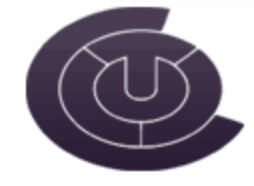CIUTI, yesterday and today
After the Second World War, the nations of Europe embarked upon economic integration and signed the Treaty of Rome with the goal of reconciliation and reconstruction. This required moving past national self-interest in order to achieve what no country could achieve on its own.
Right from its inception, the Community regarded each national language as an official and working language. Meanwhile, international trade was expanding around the world and so was the need for translation and interpretation services. It became imperative to train a large number of translators and interpreters.
In the 1950s, such language services were provided by linguists or philologists educated in the liberal arts or social sciences or trained at one of the few specialised translation institutes, which were invariably attached to a university. Many of these language specialists saw the function of the translator in particular as growing out of dissemination of literary, philosophical and scientific works.
Such was the backdrop when, in 1960, the heads of the “interpreting schools” at the universities of Geneva, Heidelberg, Mainz/Germersheim and Paris-Sorbonne met in Basel to discuss the inherent challenges of training translators and interpreters. One of those challenges was getting their own universities to recognise “Translation and Interpretation” as a discipline in its own right rather than tuck it under another department such as linguistics. Such was that context set in motion all that has since been extensively developed in Translation Studies, the new field that established the scientific foundations of translation and interpretation as a specific activity.
To bolster such recognition, CIUTI’s Guidelines for New Membership emphasised that members had to be universities. Only within institutions of higher education would translation and conference interpreting curricula be recognized as diploma-bearing post-secondary degree programmes. In the 1950s and 60s, this spirit of collaboration faced real obstacles, especially when it came to the mobility of professors and students. Another meeting took place in Geneva in 1960, this time attended by the directors of the institutes at the Universities of Mainz/Germersheim, Saarbrücken and Trieste.
It wasn’t until 1962, during the second meeting attended by the University of Vienna, that the bylaws were drafted. They were reworked in Paris in 1963 and adopted in Trieste in 1964, thus establishing the Conférence Internationale Permanente d’Instituts Universitaires pour la formation de Traducteurs et Interprètes (CIUTI). Its aim was to promote the training of professional translators and conference interpreters who, in accordance with the Guidelines for New Membership, would be job-ready upon completion of their studies.
In 1973, CIUTI already had 13 members, including institutes in Belgium, Denmark, and England, as well as an institute in Washington, DC and another in Montreal. However, CIUTI’s actual activities were limited to Europe. As more countries joined the European Community and more official languages were being used in its institutions, CIUTI came to maintain ongoing official and non-official ties with these various European Community bodies.
As an organisation interacting with the European Community, CIUTI needed to acquire due legal status. On 24 November 1994, CIUTI became recognised under Belgian law as an international organisation under the name Conférence Internationale Permanente d’Instituts Universitaires de Traducteurs et Interprètes.
Up to this point, CIUTI had essentially been a European organisation. It has since expanded and endorsed the 1976 United Nations Recommendation on the Legal Protection of Translators and Translations and the Practical Means to improve the Status of Translators. These recommendations specify the conditions necessary to improve the status of translators not only for the sake of the profession itself but in the interest of international understanding, the sharing cultural values and, in particular, in service to the sciences, technological progress and economic development.
CIUTI has also incorporated into its objectives the Charter of the International Federation of Translators, which calls for the recognition of translation as a distinct, independent profession in today’s world.
In pursuit of its goal to foster global collaboration, CIUTI is actively looking to grow its non-European membership. CIUTI members are well aware of the challenges that such collaboration entails in terms of internal organisation and when it comes to the content, duration and testing requirements of its members’ training programmes.
Today, CIUTI is addressing cultural differences and how they impact translation and interpretation curricula around the world.
CIUTI positions itself as a major actor in the global domain of translation and interpretation training, and has forged solid relations with the professional world of T&I. Each year the General Assembly gives the floor to associations such as FIT or AIIC, and with large international organisations that employ translators and interpreters.
Between 2003 and 2017 the CIUTI Forum brought together, mostly in Geneva, those working in the professional domains of translation, interpreting and communication. Since 2018 this platform for exchange and discussion has taken the form of a conference organised back-to-back with the annual General Assembly.
In 2020 CIUTI drafted a statement that aims to capture both the mission and the challenges of T&I training institutions in the 21st century.
